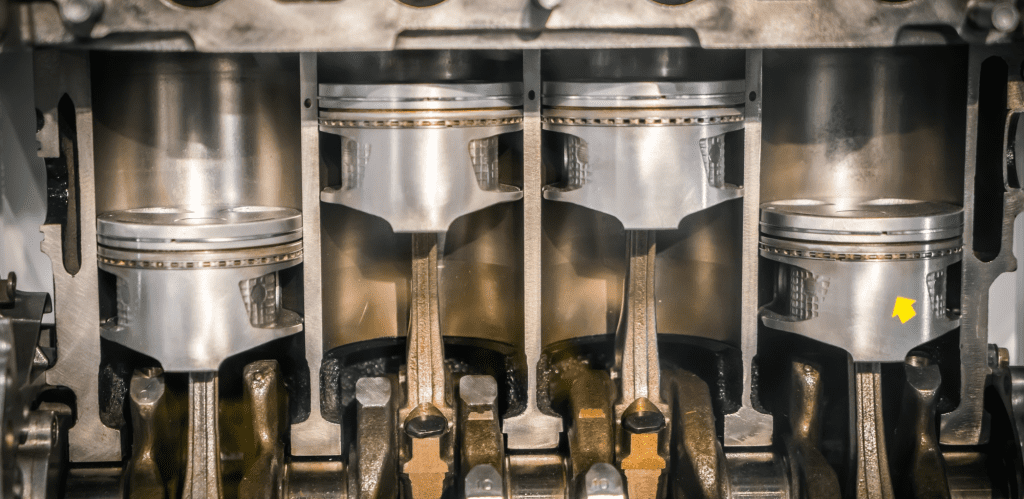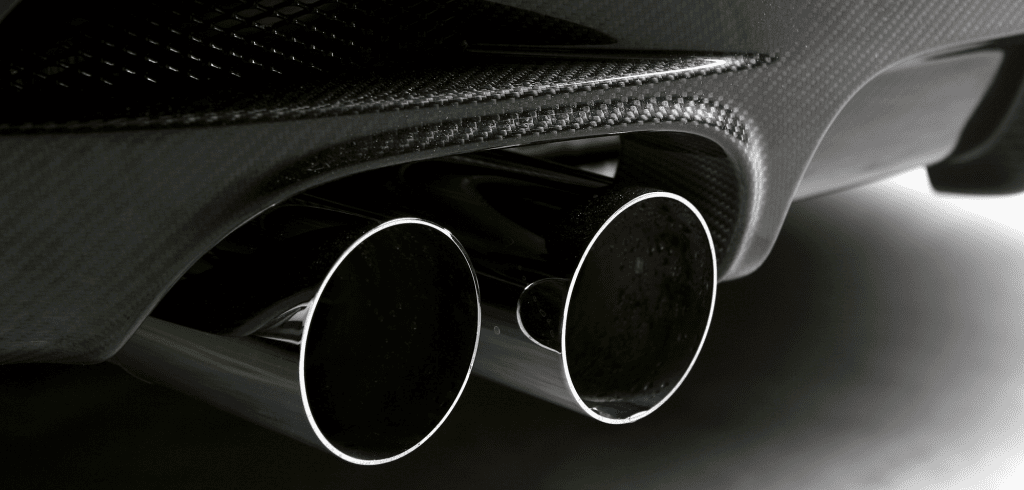Compare cheap car insurance
✔ Compare cheap car insurance quotes
✔ Over 110 insurance providers
✔ Get a quote in minutes
✔ Save up to £504*


- What is car engine remapping?
- What are the benefits of car engine remapping?
- What are the disadvantages of remapping a car?
- How much does a remap cost?
- Do I need to tell my insurance provider if my car engine is remapped?
- Where can I compare car insurance for remapped cars?
- Frequently asked questions
A guide to car engine remapping
Car engine remapping has gained popularity as a method to enhance the power and performance of your vehicle. If you’re curious about what it entails, how much it costs, and the potential impact on your car insurance, our guide to car engine remapping has you covered.
Explore the ins and outs of car engine remapping to determine whether it’s a worthwhile option for you. Gain insights into the process, cost considerations, and how it may impact your car insurance cover. Make an informed decision about whether car engine remapping aligns with your needs and preferences.
What is car engine remapping?
Car engine remapping, also known as “chipping,” involves adjusting the programming of a car’s Engine Control Unit (ECU) microchip to overwrite its factory settings. This process unlocks the full potential of your car’s engine, enhancing its power and performance.
How does remapping a car work?
The ECU serves as a mini-computer that controls various aspects of the engine’s functioning. In older cars made before 2000, the ECU chip could be physically removed, retuned, soldered, and replaced. However, in modern cars, the remapping process is typically done by connecting a laptop to the car’s onboard diagnostics port using a cable.
By default, the ECU software settings are programmed to limit the car’s performance capabilities in order to comply with regulations, such as noise and emissions standards, and to ensure durability under various conditions. These limitations also allow manufacturers to release more powerful models in the future without significant engine redesign.
During the remapping process, the software of the ECU is modified and the engine is fine-tuned to optimise performance. Parameters such as ignition timing, air/fuel ratio, and turbocharging boost pressure can be adjusted to unleash additional power and torque. This can result in performance improvements of up to 35 percent.
It is essential to have a qualified specialist perform the car engine remapping to avoid damaging the engine. The procedure typically takes about half an hour, and when done correctly, you should notice an immediate improvement in performance.
Keep in mind that car engine remapping may have implications for your car insurance cover and warranty. It is recommended to inform your insurance provider and consult your vehicle manufacturer or authorised dealers to understand any potential impacts on insurance and warranty terms.
Before proceeding with car engine remapping, thoroughly research and choose a reputable specialist who has expertise in this field. Discuss your requirements and expectations with them to ensure the remapping is tailored to your specific needs.
How much can you save on your car insurance?
What are the benefits of car engine remapping?
Car engine remapping is primarily sought after by drivers looking to increase their car’s speed and power. However, there are several additional advantages that come with engine remapping:
Improved fuel economy: Through remapping, the engine’s performance can be optimised to burn fuel more efficiently. By adjusting the air/fuel mixture and other parameters, you can potentially achieve better mileage and overall fuel economy. This not only saves you money at the pump but also contributes to reducing your carbon footprint.
Enhanced control and driveability: Engine remapping can result in a more responsive throttle and quicker engine response. This translates to a smoother and more enjoyable driving experience. With increased torque, you’ll have improved control during acceleration, making overtaking safer and easier.
Easier towing: If you frequently tow heavy trailers or caravans, engine remapping can provide your vehicle with extra power. This additional torque enables your vehicle to handle the added weight more efficiently, making uphill climbs and acceleration while towing less demanding on the engine.


Customised performance: Engine remapping allows for personalised adjustments to meet your specific driving preferences. Whether you prioritise power, fuel efficiency, or a balance between the two, a skilled specialist can tailor the remap to your desired performance characteristics.
It’s important to note that engine remapping may have implications for your car’s warranty and insurance cover. Before proceeding with remapping, it’s advisable to consult your vehicle manufacturer or authorised dealers to understand any potential impacts on warranty terms. Additionally, inform your insurance provider about the modification to ensure proper cover.
When considering engine remapping, research reputable specialists with experience in this field. Discuss your requirements and expectations with them to ensure the remap is customised to your specific needs, providing the desired performance enhancements while maintaining the reliability of your vehicle.
How much can you save on your car insurance?
What are the disadvantages of remapping a car?
While car engine remapping can offer significant benefits, it’s important to be aware of potential drawbacks:
Limited impact on non-turbo petrol engines: Engine remapping typically provides the greatest performance improvements for turbo-powered engines. If your car is a non-turbo petrol model, the increase in brake horsepower (bhp) from a remap alone may be minimal or negligible.
Increased strain on engine components: Enhancing engine power and torque through remapping can put additional stress on various components, such as the clutch, pistons, and valves. This increased strain may lead to accelerated wear and tear, requiring more frequent servicing and potential repairs.


Requirement for higher-octane fuel: A remapped engine may demand higher-octane fuel to accommodate the increased power and prevent potential engine knocking or damage. Higher-octane fuel is typically more expensive, which could impact your overall running costs.
Warranty implications: If you get a remap that is not approved by the manufacturer or an authorised dealership, it could potentially invalidate your car’s warranty. Before proceeding with any modifications, it’s crucial to review your warranty terms and consult with the vehicle manufacturer or authorised dealerships to understand any potential impacts.
Insurance considerations: Remapping your vehicle could have implications for your car insurance cover. Some insurance providers may not cover remapped vehicles at all, while others may require notification and adjustment of the policy. It’s essential to inform your insurance provider about any modifications to ensure proper cover and compliance with policy terms.
To mitigate these disadvantages, it’s recommended to choose a reputable and experienced specialist for the remapping process. They will have the necessary expertise to perform the remap correctly and ensure the modifications are aligned with the specific capabilities and limitations of your vehicle.
Additionally, consult with your vehicle manufacturer, authorised dealerships, and insurance provider to understand the potential impacts and make informed decisions regarding your car’s remapping.
How much can you save on your car insurance?
How much does a remap cost?
The cost of car engine remapping can vary depending on several factors, including the make and model of your car, the type of remapping you choose, and additional modifications or upgrades you opt for.
On average, the cost of a basic remap ranges from £200 to £400, which mainly covers the labour involved. If you prefer to have your car tested on a rolling road to assess the results of the remapping, there may be an additional fee.


For more advanced stages of remapping that involve additional components like air filters or exhaust systems, the cost can increase to around £1,000.
If you’re looking for a comprehensive remap that includes major engine modifications or a new turbo system, it could potentially cost several thousand pounds.
It’s worth noting that these are estimated costs, and prices may vary depending on various factors, including the specific service provider and location. It’s recommended to consult with a qualified specialist or remapping service to get an accurate quote for your particular vehicle and desired level of remapping.
How much can you save on your car insurance?
Do I need to tell my insurance provider if my car engine is remapped?
Yes, it is important to inform your insurance provider if your car engine has been remapped. Car engine remapping is considered a modification in the eyes of car insurance companies, even if it is not visually apparent. Failure to disclose the remapping to your insurance provider can result in your policy being invalidated.
When you notify your insurance provider about the remapping, it could potentially lead to an increase in your car insurance premium. While car engine remapping is becoming more common, there are still some insurance providers who may not provide cover for vehicles that have been remapped.
It’s important to check with your insurance provider to ensure that your policy covers any modifications made to your car, including engine remapping.
How much can you save on your car insurance?
Where can I compare car insurance for remapped cars?
If you’re looking to compare car insurance quotes for remapped cars, you can begin by getting a quote from Comparoo. We can provide you with a list of insurance providers who may offer cover for remapped vehicles.


It’s important to note that if your car has been remapped, you should inform the insurance provider before purchasing a policy. Remapping is considered a modification, and as such, you may require specialist-modified car insurance to ensure adequate cover for your remapped car.
By notifying the insurance provider in advance, you can ensure that you receive the appropriate cover for your specific vehicle modifications.
Frequently asked questions
Many local garages provide remapping services, and some may even offer mobile services where they come to your location. However, it’s crucial to exercise caution and choose a reputable and authorised company for the job.
It’s recommended to conduct thorough research and select a company that is authorised and experienced in car engine remapping. Beware of less-reputable companies that may engage in illegal practices, such as removing your car’s emission-limiting software entirely.
This is not only against the law but also means that your car will fail its MOT (Ministry of Transport) inspection. By choosing an authorised and reliable company, you can ensure that the remapping process is performed correctly and in compliance with legal requirements.
It is possible for a remapped car to fail its MOT if the remapping process is not done properly or if it results in the vehicle exceeding the permitted emission levels.
However, if your car has been remapped by a reputable and professional company, there should be no cause for concern regarding MOT failure due to emissions.
A reputable firm will ensure that the remap is performed within legal limits and takes into account the necessary emissions standards set by the relevant authorities.
It’s important to choose a trusted and experienced provider to carry out the remapping process, as they will have the knowledge and expertise to ensure that your car remains compliant with emissions regulations.
By selecting a reputable company for your car engine remapping needs, you can minimise the risk of MOT failure and have confidence that the remap has been conducted correctly and in compliance with all relevant regulations.
Remapping itself is not inherently bad for your engine if it is performed by a reputable and experienced company. However, it’s important to understand that remapping your engine for increased power may put additional strain on certain components of your vehicle.
When you remap your engine to extract more power, it can result in increased stress on various parts of the car, including the brakes. If you drive at higher speeds or engage in more aggressive driving due to the increased power, it may lead to faster wear and tear on the braking system. This means that you may need to replace brake components more frequently than you would with a stock engine.
To mitigate the potential strain on your vehicle, it’s advisable to ensure that your car is properly maintained, including regular inspections and servicing. It’s also essential to drive responsibly and take into account the increased performance capabilities of your remapped engine.
Ultimately, the impact on your engine will depend on various factors, including the condition of your car, the quality of the remapping process, and how you drive your vehicle after the remap. Choosing a reputable company and being mindful of your driving habits can help minimise any potential negative effects on your engine.
Not all cars are suitable for remapping. Older models, especially those manufactured before 2000, may require physical modifications to their chips, such as soldering or replacement, rather than a simple software update or remap.
Some manufacturers also implement locked chips to prevent remapping, although many tuning companies have found ways to work around these restrictions.
The cars most commonly remapped are those equipped with turbo diesel engines, often denoted by model names like TDi, HDi, or CDTi. These vehicles tend to experience significant performance improvements with relatively low remapping costs.
To determine the specific benefits for your make and model of car, you can reach out to a specialist in car remapping. Some of these specialists offer online quoting services based on the details of your vehicle.
It’s important to consult with a reputable and experienced remapping professional who can assess the compatibility of your car and provide accurate information about the potential improvements and costs involved in the remapping process.
Remapping your car’s engine has the potential to improve fuel efficiency, but it also depends on your driving habits.
If you drive responsibly and take advantage of the increased power and torque, you may experience better fuel economy. However, if you frequently push the accelerator and drive more aggressively, you may see a decrease in fuel efficiency.
For turbo diesel car owners, remapping can often lead to fuel economy gains. By enhancing torque at lower rev ranges, the engine doesn’t need to work as hard, resulting in improved efficiency. It’s worth noting that individual results may vary depending on the specific make and model of the vehicle, as well as the quality of the remapping process.
To maximise fuel efficiency after remapping, it’s recommended to drive sensibly, maintain a steady speed, and avoid unnecessary acceleration and braking. These driving practices, combined with the potential benefits of remapping, can help you achieve better fuel economy.
Engine remapping and chipping are essentially two terms used interchangeably to describe the process of modifying a car’s onboard computer, also known as the Engine Control Unit (ECU). While they refer to the same procedure, there is a slight distinction in the methods involved.
Remapping generally involves making adjustments to the ECU software by connecting a laptop or diagnostic tool to the car’s onboard diagnostic port. The existing software is overwritten with new programming, optimizing the engine’s performance and parameters.
On the other hand, chipping often refers to physically removing the existing chip from the ECU and replacing it with a modified chip or module. This process may require soldering or swapping out the chip to enable the updated programming.
Both remapping and chipping aim to enhance the engine’s power, torque, and overall performance. The specific method used can vary depending on the car’s make, model, and age, as well as the preferences and expertise of the technician performing the modification.
If your car has been remapped, it is considered a modification, and it is important to disclose this information to the buyer or any dealer you are trading your car with. Transparency is key in ensuring a fair transaction and providing accurate information about the vehicle’s history.
It is advisable to keep the paperwork related to the remapping process as evidence of the modifications that have been made to the car. This documentation can help the buyer or dealer understand the changes that have been implemented and make an informed decision.










